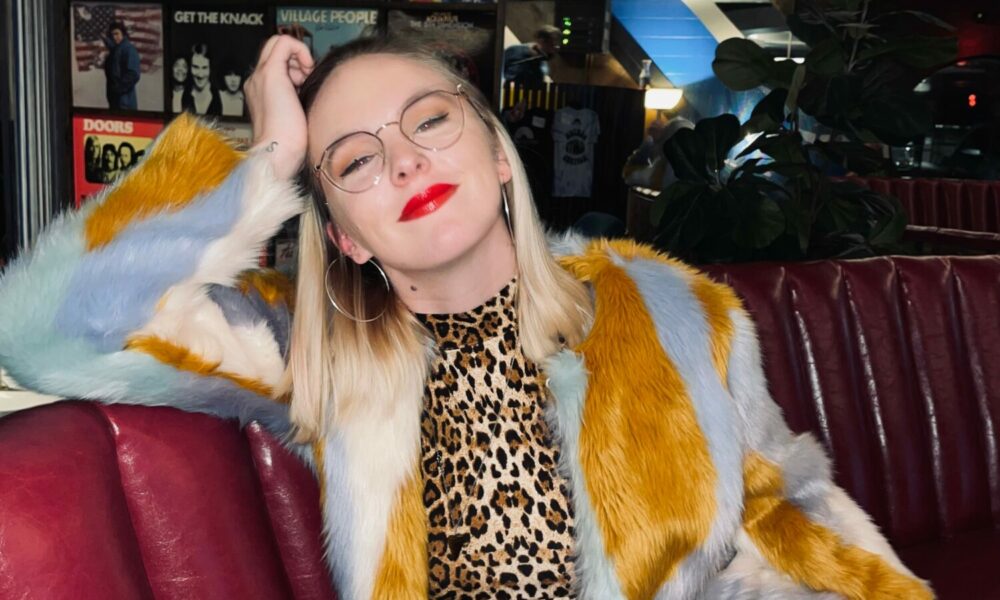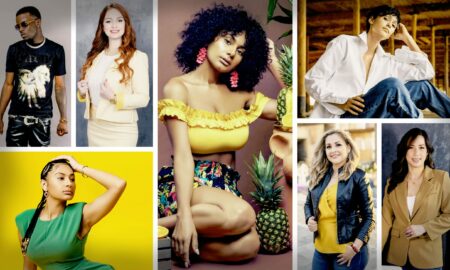

Today we’d like to introduce you to Leah Wright.
Hi Leah, it’s an honor to have you on the platform. Thanks for taking the time to share your story with us – to start, maybe you can share some of your backstories with our readers?
My interest in photography grew from a young age, I used to take photos on my flip phone or on disposable 35mm all around my house. I was constantly taking photos and finally took a photography class in High School which led me to where I am today, a senior Photography student at UNT in Denton. I am also lucky enough to have a photographer in my family, my uncle Billy. I have received an amazing education both through school and photographers I’ve met and worked with over the years. I feel very lucky to be in the position I am in.
I have been lucky enough to meet some amazing creatives: models, fashion designers, other photographers; creative people of all mediums really. These people have pushed my work to be better, for me to reevaluate my process, and have taught me to be a team player on a set in ways that I couldn’t have imagined. I love what I do, and I love meeting new people and experimenting with my work.
The CVAD photography program at UNT Denton has done so much to shape me and my work. My professors are caring, attentive, and extremely talented. The program truly shapes its students as artists and they provide some great opportunities. They also offer a wide range of mediums and teach you the history of your craft, all while preparing you for a career in the arts. I am beyond grateful for what I have been taught so far, and would highly recommend their art program to anyone who is interested in an Art Degree.
Can you talk to us a bit about the challenges and lessons you’ve learned along the way? Looking back would you say it’s been easy or smooth in retrospect?
Starting a business of any kind is difficult, especially as a young woman and especially during such an uncertain time. I am lucky enough to be employed and to have been given some job opportunities through school, but life is still generally uncertain for most people right now. The entire wedding business, for example, was hit hard by COVID 19. I had two clients who hired me to take photos for their wedding in parts- meaning that the couples were put in a position where they had to split their wedding by having a small ceremony with close family only, then wait weeks if not months to host their main celebration with their loved ones. It seems like a small sacrifice, and in the grand scheme of things everything worked out in the end, but it wasn’t ideal. Texas is strong though, and people and jobs are bouncing back wonderfully.
Most artists would likely agree that there is no set path for a career in the creative world. My own career path has shifted and turned so many times; I almost feel as if I have stumbled onto the path I am currently on. Most of the struggle I feel nowadays stems from working full time in an office, being a full-time student, and trying to grow my photography career on the side. Some weeks are easier than others, but I know I’m working towards something great.
Appreciate you sharing that. What else should we know about what you do?
My work has always been a bit scattered. My goal is to end up doing product photography, Food and Drink photography ideally. Right now, I mostly do wedding photography and focusing on my Senior Portfolio at UNT. Weddings are always fun, and I have met some great people along the way. I have recently been focusing on traditional methods of photography, with large format film and cyanotypes that were taught to me at UNT.
Before starting at UNT, I thought that film photography was a dead or dying art. Now I am extremely happy to know that it is not only alive and well, it is thriving in the art and commercial world. Film is something that is quite unique, it adds depth and meaning to your photos. Simply considering that anything can go wrong adds a level of meaning to each exposure. You also lose the ability to check your photos as you go, you have to be instinctual with your settings, framing, and timing.
I have one ongoing project that I started in late high school, where I would take disposable 35mm cameras (I now use a reloadable 35mm, which is more cost-effective and less wasteful!) and I would go around to hang with friends, or go to concerts and try to fill each camera. I then put the camera or roll of film away in a box that I am waiting to develop until I am about to graduate college, which will be next spring. This project has been in the works for years, and the excitement of not knowing which photos turned out, or which events I have captured will be on those prints is incredibly exciting. This project taught me the importance of staying in the moment, I would usually leave my phone at home so that any photos I got that night were on 35mm, to be locked away until the moment I close the “College Chapter” of my life.
Risk-taking is a topic that people have widely differing views on – we’d love to hear your thoughts.
Risk is key to finding your path, especially in the creative world. Photography is an ever-changing medium, and it has a history of walking the line or even blurring the line between fine art and documentation. Risks can be big or small, even just taking the next step in building a career can be a risk. The first step is always the hardest, no matter how small it may seem. Whether it be publishing your portfolio, emailing that guest speaker for advice, or showing up to your first lone gig, these are all important to building your career and portfolio. Mistakes are imperative to the process, and it is always better to ask for forgiveness than permission.
Someone once told me that luck does not exist, but that it is the moment when your preparation meets opportunity. Being prepared for opportunity opens you to it, and opportunity is what can jumpstart a career.
Contact Info:
- Email: leahwright331@gmail.com
- Website: leahwrightphoto.com
- Instagram: @leahwrightphoto


















